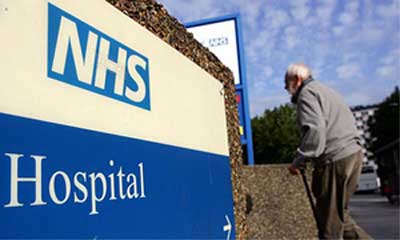If you have any departmental or Trust news you'd like to share, please get in touch.
- Details
A US study suggests that artificial intelligence is better than specialist doctors at diagnosing lung cancer.
The researchers at Northwestern University in Illinois and Google hope the technology could boost the effectiveness of cancer screening.
Finding tumours at an earlier stage should make them easier to treat. The team said AI would have a "huge" role in the future of medicine, but the current software is not yet ready for clinical use. The study focused on lung cancer, which kills more people - 1.8 million a year - than any other type of cancer. It is why the US recommends screening for people at high risk because of years of heavy smoking. However, screening can result in invasive biopsies for people who turn out not to have cancer, and also misses some tumours.
Read more: Artificial intelligence is better than specialist doctors at diagnosing lung cancer.
- Details
A new study by health experts has shown that the productivity of the NHS has improved almost two and a half times as fast than the wider economy over the last 12 years, meaning more care and treatments for patients and better value for taxpayers. According to the University of York’s Centre for Health Economics, hard-working NHS staff provided 16.5% more care pound for pound in 2016/17 than they did in 2004/05, compared to productivity growth of only 6.7% in the economy as a whole.
Their study, Productivity of the English National Health Service: 2016/17 Update, revealed NHS outputs have continuously increased since they began measuring a dozen years earlier. Some 5.2 million more patients received planned or emergency hospital treatments in 2016/17 than in 2004/05 – an increase of about 42%. Separately outpatient activity has shot up by 131% since 2004/05, with over 60 million more attendances in 2016/17 compared to 2007/08.
Read more: NHS Staff praised as productivity grows more than twice as fast as wider economy
- Details
 NHS England has welcomed moves by football clubs to improve the nation’s health including cookery classes for bereaved men, exercise sessions for people with cancer and sport to help tackle mental ill health. A nation-wide day of action saw 72 football clubs from the English Football League put their full weight behind nationwide community health activities.
NHS England has welcomed moves by football clubs to improve the nation’s health including cookery classes for bereaved men, exercise sessions for people with cancer and sport to help tackle mental ill health. A nation-wide day of action saw 72 football clubs from the English Football League put their full weight behind nationwide community health activities.
The NHS Long Term Plan commits to ramping-up personalised care, including placing 1,000 social prescribing link workers in GP surgeries, giving more time to help patients with issues that can have a knock-on effect on health, like loneliness or isolation, and connecting them to suitable local activities.
Social prescribing can offer alternative ways of treating people in their community, with one-in-five of GPs regularly referring patients to these schemes, as studies show 28% fewer GP consultations and 24% fewer A&E attendances where social prescribing ‘connector’ services are working well.
Read more: NHS applauds plans by English Football League to improve nation’s health
- Details
 Female healthcare scientists are invited to apply for NHS England’s prestigious leadership development scheme, aimed at mid-career healthcare scientists to develop leaders and increase their impact within their Trusts and beyond.
Female healthcare scientists are invited to apply for NHS England’s prestigious leadership development scheme, aimed at mid-career healthcare scientists to develop leaders and increase their impact within their Trusts and beyond.
Led by NHS England’s Chief Scientific Officer, the CSOWISE Healthcare Science Leadership Development Programme for NHS England scheme provides support for 32 healthcare scientists over 12 months through a leadership development programme that includes mentoring alongside communication and leadership skills training. In addition, successful applicants will have the opportunity to attend the Chief Scientific Officer conference and become WISE role models, helping to inspire the next generation to follow in their footsteps.
- Details
 Lung cancer scanning trucks that operate from supermarket car parks are being rolled out across the country in a drive to save lives by catching the condition early, NHS has England announced. Around £70 million will fund 10 projects that check those most at risk, inviting them for an MOT for their lungs and an on the spot chest scan that include mobile clinics.
Lung cancer scanning trucks that operate from supermarket car parks are being rolled out across the country in a drive to save lives by catching the condition early, NHS has England announced. Around £70 million will fund 10 projects that check those most at risk, inviting them for an MOT for their lungs and an on the spot chest scan that include mobile clinics.
The targeted screening will help improve survival rates by going first to the some of the areas with the highest death rates from lung cancer.
A recent study showed CT screening reduced lung cancer mortality by 26% in men and between 39% and 61% in women. The roll out has the potential to reach around 600,000 people over four years, detecting approximately 3,400 cancers and saving hundreds of lives across the country.
Read more: NHS to rollout lung cancer scanning trucks across the country


